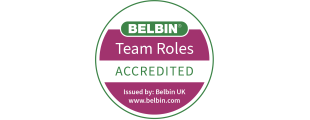I’m back at my desk today*, for the first time in four months. And having readjusted my chair and battled my way into email, I’m trying to pick up threads I put down in a hurry all that time ago, and process everything that has changed, from hand sanitiser to business strategy.
I had only been back to work a short time (following maternity leave) before furlough began. Both periods of leave were times of enormous change and upheaval, but the second was uncertain and indefinite—an in-breath without an accompanying out-breath.
Many have written eloquently on the mixed feelings which can accompany furlough. There might be a dip in self-confidence. Guilt at seeing colleagues take the strain of increased workloads. But perhaps also the relief at being better able to juggle other responsibilities and even joy in taking stock and finding time for other projects.
After a hiatus, how do we begin readjusting to yet another shift in our work-life balance, and what impact does this have on our behaviours? What do our teams look like now and how do we move forward?
For some of us, pursuing other interests might have led to the discovery and development of new strengths we didn’t know we possessed. For those with process-driven jobs, for example, furlough might provide an opportunity to express and nurture creative talents. Others might seek opportunities to demonstrate the skills they have missed exercising at work. Upon our return, previously familiar working styles might not feel like a good fit any longer.
Just as we have been doing in many aspects of our lives, this time gives us the chance to re-assess our priorities and consider whether our old ways of working will best serve us in future, or whether the time is ripe for change. It’s also a time when we ought to be more mindful than ever of the needs of colleagues—from those who have been ‘firefighting’ to those who are trying to find their feet again.
Perhaps when it comes to re-examining what our businesses and teams need, we can call on familiar frameworks (to provide a shorthand) but look to build something new, keeping what works and changing what doesn’t. In the past, we might have recognised the need for large-scale change, but have perhaps been cowed by the upheaval involved. Now the upheaval has come to us. When it comes to our teams and the way we work, we can build back better too (to borrow a phrase).
One of the best things about being back in this chair is reading about all the inventive ways you’ve been using Belbin to adapt to everything this year has thrown at us all. From managing virtual teams to building CVs and discovering new skills, it’s wonderful to see the language of Team Roles helping students, professionals and teams flourish within a rapidly-changing environment and to hear how our clients are making a huge difference.
I look forward to getting back in touch, and of course, to bringing you more thoughts and findings on all things Belbin via our blog and research papers. This week, appropriately for a year which has challenged so many assumptions, we’re looking at ten surprising things teams need, from overshares to self-preservation. And who knew common sense could be a bad thing?
"Hooray - we have missed you - we'll have to get more teabags in (I believe it's your round?)





